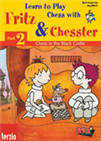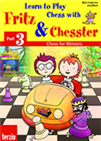Facing the Stereotype
The stereotype that chess players must be good at maths, memory, and many other cognitive activities has been commonplace. Sending children to extracurricular classes in hopes of raising both their academic and non-cognitive skills is commonplace, and one such popular extracurricular class is chess, which has been introduced in many schools worldwide as either part of the curriculum or popular lunchtime/after-school activity. Even outside the school environment, playing chess is often seen as a sign of intelligence and diligence. Islam et al’s research paper on “The Effects of Chess Instruction on Academic and Non-Cognitive Outcomes: Field Experimental Evidence from a Developing Country” looks at whether playing chess does actually improve your cognitive and non-cognitive skills.
Hypothesis
Is there actually scientific backing to chess players performing better in cognitive activities than the average Joe who does not play chess? The main hypothesis in this paper is that chess helps with conceptualization and makes us less risk-averse. Measuring “risk preferences, patience, creativity and attention/focus” (Islam, Asad, et al. “The Effects of Chess Instruction on Academic and Non-Cognitive Outcomes: Field Experimental Evidence from a Developing Country.” Aug. 2019.)1, which the paper summarizes as coming out of us chess players’ abilities to sacrifice (put simply). Other hypotheses include children being more patient, increasing their logical thinking skills, among other general cognitive benefits.
The authors also put emphasis into the paper’s relevance to fields in economics. Developing non-cognitive skills, such as social behaviours, participating in the labour force, moderating drinking, avoiding smoking, etc., is very important for later life.
Main Findings
 Jump into chess action, move by move, to rescue Chesster from deep within King Black’s castle. Join Fritz and Bianca in a thrilling chess adventure as they enter rooms of the castle, where each challenge will help you sharpen skills and prepare for the ultimate showdown.
Jump into chess action, move by move, to rescue Chesster from deep within King Black’s castle. Join Fritz and Bianca in a thrilling chess adventure as they enter rooms of the castle, where each challenge will help you sharpen skills and prepare for the ultimate showdown.Before I go further in depth on the process of the thoroughly conducted experiment, the main finding was, “chess training reduces the treatment group’s level of risk aversion almost a year after the intervention ended.” Being more willing to take risks is generally a good thing in the world of academia, business, and social life. It is very likely that being less risk averse indirectly helped students become more willing to do more schoolwork, speak up in class, ask for help, do extracurriculars that they may have otherwise not have done.
Personally, we all know how difficult it can be to an active student, in fear of being scoffed at or mocked if a question is answered wrong. Therefore, when a student takes that extra step, to do more for their own good, it is very likely they will improve in many aspects of their academics and life.
Perhaps of lesser surprise to us, the second most important finding is that (and the line most of us want to hear) “chess training improves maths scores, reduces the incidence of time inconsistency and the incidence of non-monotonic time preferences”. However, it is important to note that this is less conclusive than their main finding above. I will go into further detail about the specifics of this later. As such, we can say that the stereotypical link we have between chess and maths skills must be reassessed.
My personal favourite finding by the authors was that their “results do not suggest that there are any short term effects of chess instruction on creativity, or medium term effects on focus and attention.” I will have to keep this in mind the next time I tell someone I am able to stay focused for a long time because of chess!
What was the experiment?
 This unforgettable chess adventure is designed to advance young chess player’s skills, move by move. Discover mini-games, brain-twisters and more at every attraction. Pick up chess tips and skills as you ride in bumper cars and the Ferris wheel. Polish up your chess strategy and tactics, opening, middle game and endgame and use what you’ve learned to win. You’ll have lots of fun while you learn more about the serious business of playing – and winning – chess!
This unforgettable chess adventure is designed to advance young chess player’s skills, move by move. Discover mini-games, brain-twisters and more at every attraction. Pick up chess tips and skills as you ride in bumper cars and the Ferris wheel. Polish up your chess strategy and tactics, opening, middle game and endgame and use what you’ve learned to win. You’ll have lots of fun while you learn more about the serious business of playing – and winning – chess!It is important to note that this paper was written based on the authors’ own findings after conducting an experiment on primary school students in southwest Bangladesh, conducted in January-February 2016 with schools chosen randomly in the region.
A short excerpt from the paper states: “schools were randomly divided into two groups: eight in the treatment group and eight in the control group. Twelve students in the treatment schools received twelve days of chess training (spread over three weeks)” and “chess instruction involved teaching the rules of chess and basic chess strategy.” Said chess instruction came from free materials provided by FIDE, with students receiving approximately 30 hours total.

From Online Appendix 1 of Islam et al’s paper, the instructional material syllabus
Accuracy, Hypothesis Testing and Results
Using an empirical approach to determine whether their hypothesis is correct, results were taken at different stages throughout the experiment, with some being taken as late as October 2016. Using an OLS (ordinary least squares) regression, the authors calculated the treatment effect of each individual student in their respective schools.
A further analysis checking for error using p-values (and finding them by the bootstrap method) was conducted, which led to the false discovery rate. Remember how I said the second finding (“chess training improves maths scores, …”) is less conclusive? Well, Islam et al decided “effects of chess training on the other academic outcomes, creativity, and attention/focus were not statistically significant”. Very specifically, this was a result of “controlling for multiple hypothesis testing using the false discovery rate.” I will not go into detail what false discovery means (similar to the Type 1 Error, for those interested in statistics), but essentially the null hypothesis was rejected incorrectly. Say the null hypothesis (for testing purposes) is that chess does not improve the cognitive skills of children. Then, for the null hypothesis to be rejected incorrectly means that the null hypothesis should have been accepted.
Details, equations and process can be found in the paper.
My Opinion and Limitations
I believe Islam et al’s research is quite concise. The lack of field study or experimentation in researching the effects of playing chess has come as a surprise to me, as the belief that learning chess improves both cognitive and non-cognitive skills that has been largely considered to be obvious. As such, the authors encourage more studies in order to provide more evidence and research. The limitations on this study are tenacious, with data coming from a rural area of a developing nation, which means there is quite a lot we must keep in mind.
Firstly, with the field experiment coming from a specific country, the differences between teaching regular subjects in Bangladeshi schools and those in other countries should be considered. There is no universal way of teaching or testing for skills. Therefore, a similar experiment conducted in a developed nation may yield different results as children have access to a greater variety of resources. Like the authors said, “unlike primary schools in developed countries or in urban settings, effective instructional time in rural primary schools in Bangladesh is relatively short” (Tietjen, Rahman, and Spaulding, 2004; Islam 2019), mostly because of teacher absenteeism, which negatively impacts the students’ results. Moreover, the authors have noted that student attendance on days with chess training were not recorded, which also negatively impacts the students’ chess learning.
Secondly, as a word of caution to anyone attempting to repeat Islam et al’s experiment, it is impossible to completely disregard the possibility of outside influence (other than chess) on a child’s cognitive and non-cognitive skills. Of course, it has been stated in the paper that most of the children participating in the study came from underprivileged families. Commonly, in developed countries such as Canada, children get sent to after-school maths classes or language classes, all of which strengthen cognitive thinking. As such, there would be much contamination on the direct effect of chess classes offered at school, as the child may have participated in other activities.
Final Note
If you are interested in learning more about the analysis on the cognitive and non-cognitive effects of playing chess, please take your time and read the research paper.
Footnote
1. For conciseness, everything in quotation marks will be directly quoted from Islam, Asad, et al. “The Effects of Chess Instruction on Academic and Non-Cognitive Outcomes: Field Experimental Evidence from a Developing Country.” Aug. 2019.
Links
























